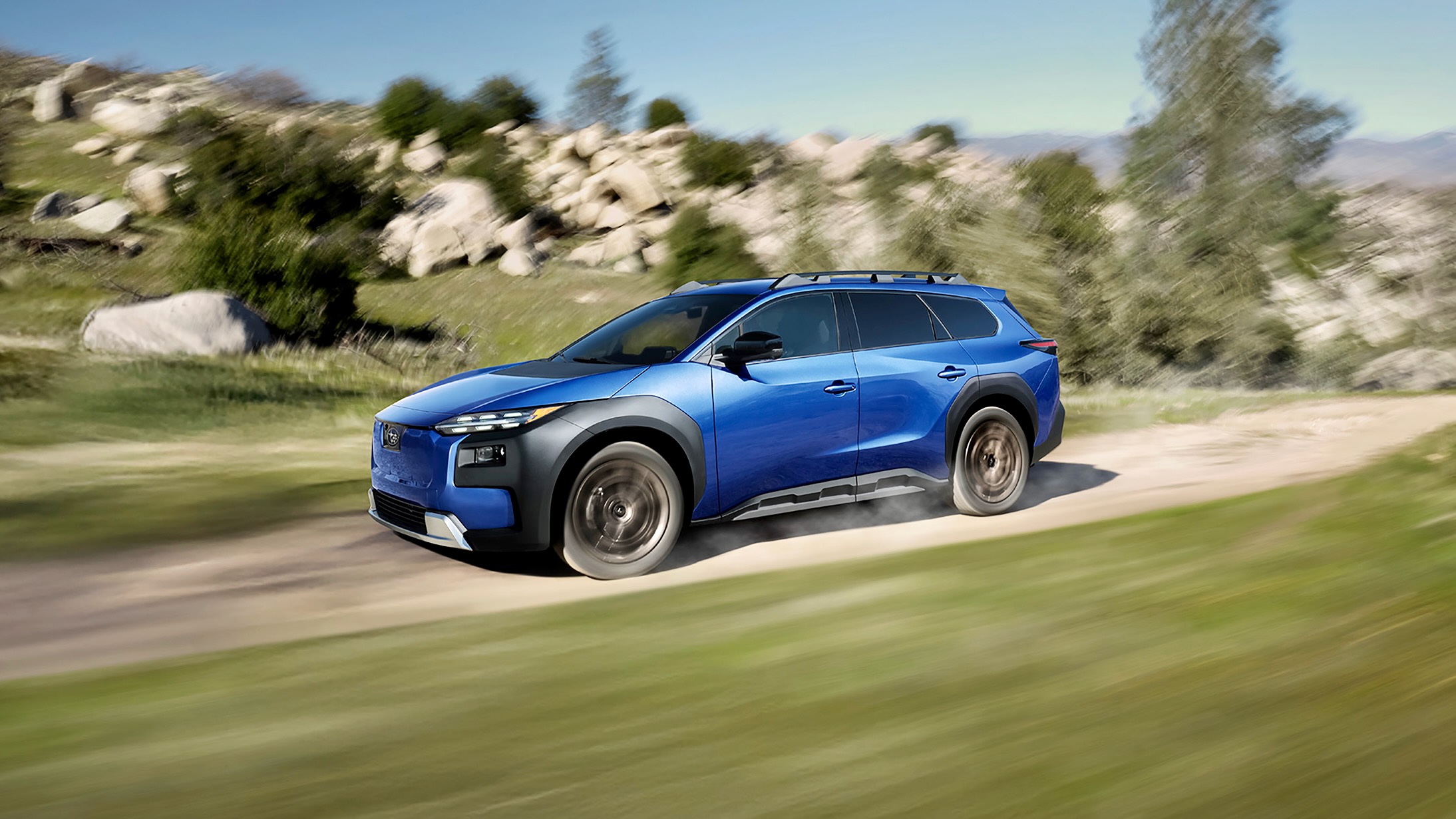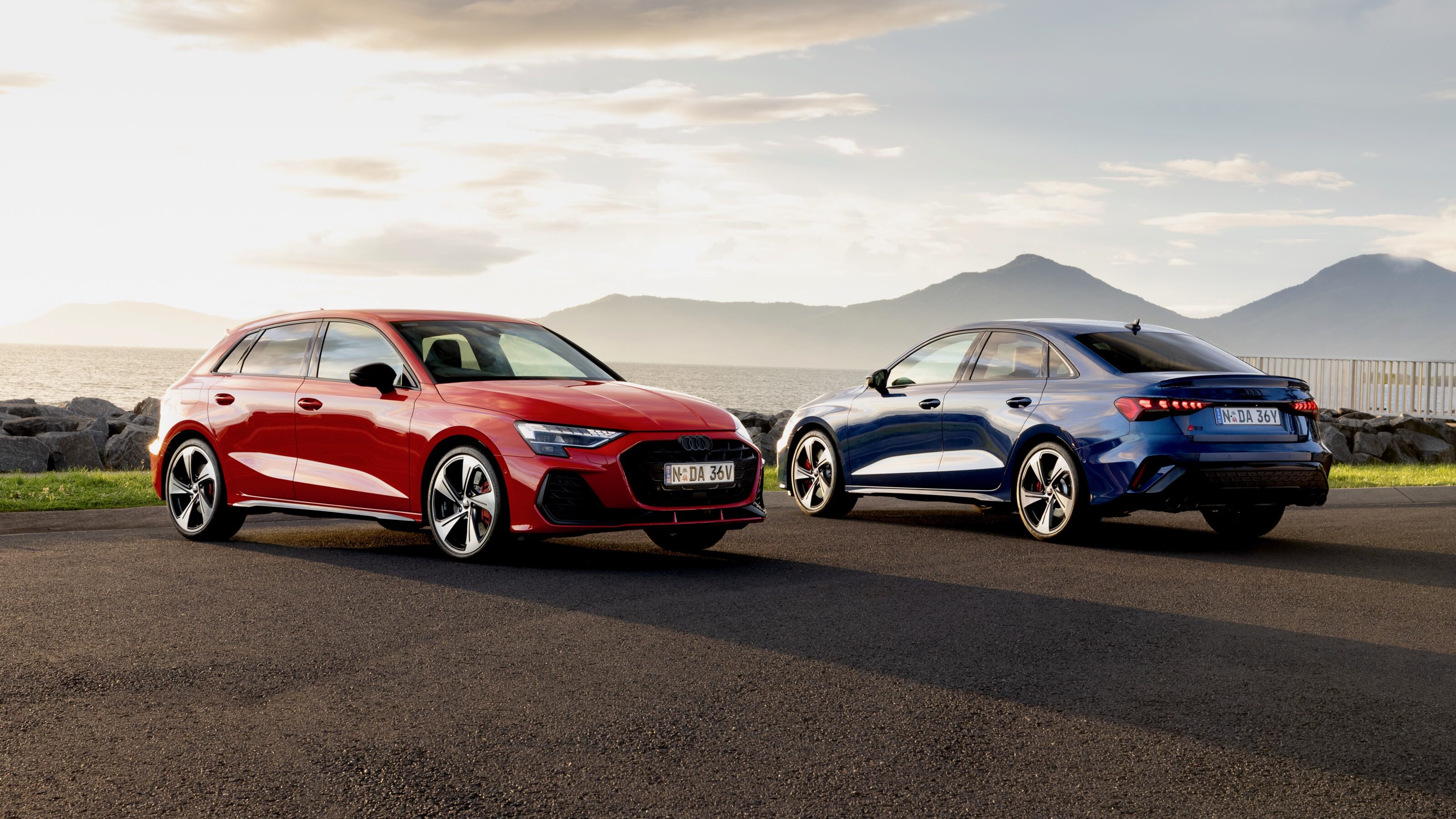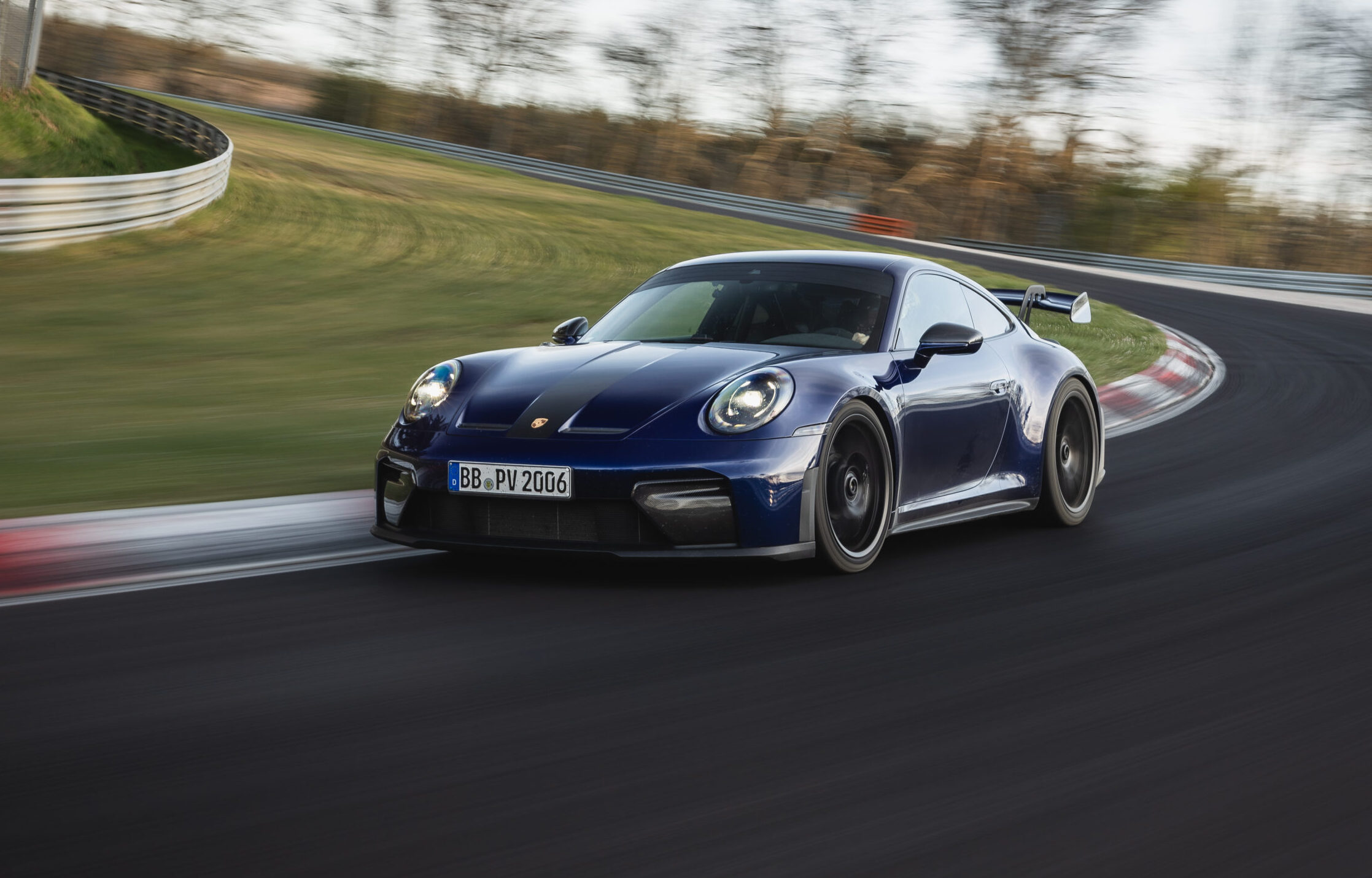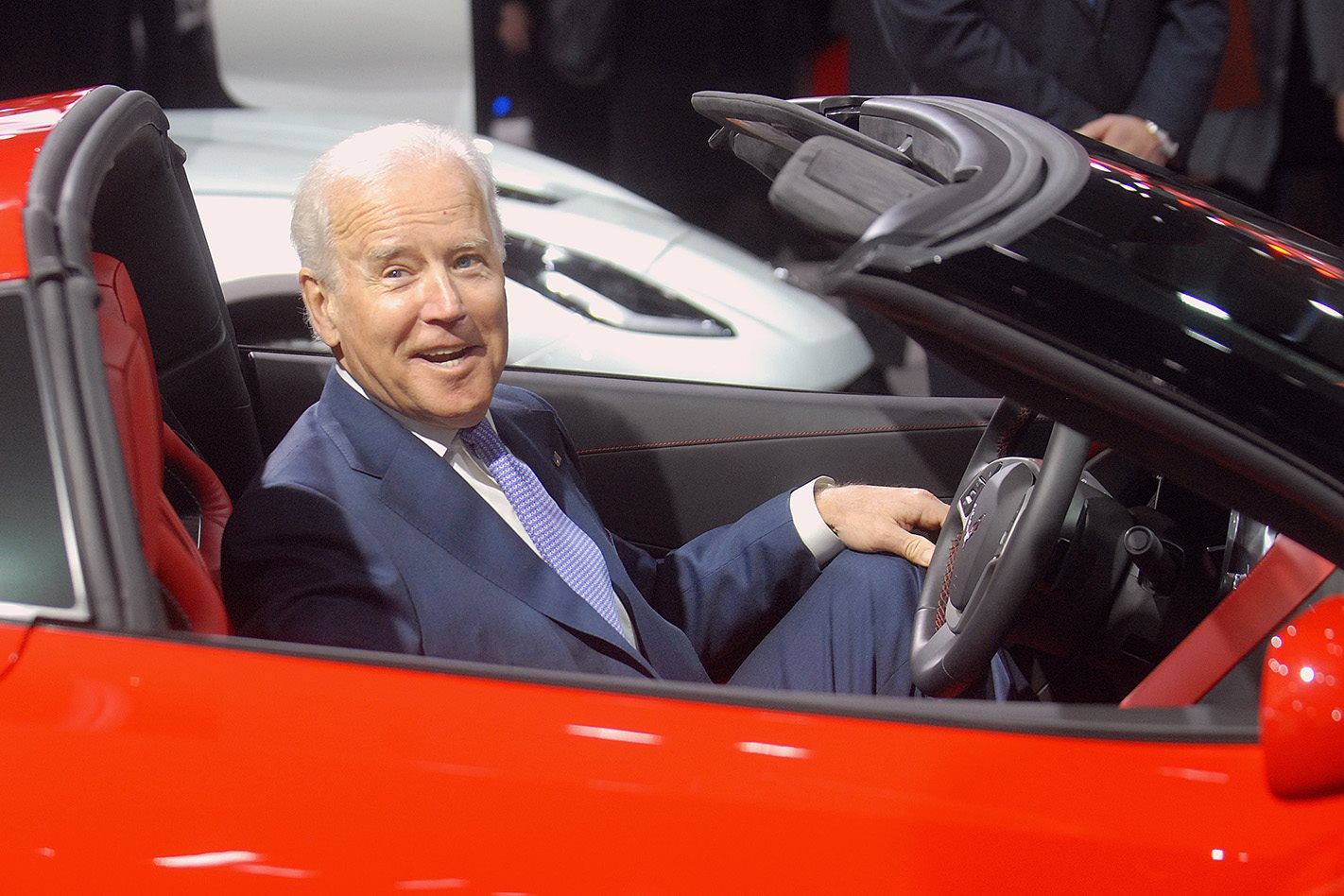
Assuming United States President-elect Joe Biden isn’t blocked from moving into the White House in January, you can expect to see some big changes to the US car industry including an unprecedented focus on electric vehicles.
The rev-head former Vice President, who still owns a 1967 Chevrolet Corvette Stingray that was a wedding present from his father, believes the best way to make US car manufacturing great again is to be the world leader in electric-vehicle (EV) production.
“I believe we can own the 21st-century market again by moving to electric vehicles,” Biden said in a video produced during the presidential campaign (above).
Biden has pledged US$400 billion (A$550 billion) to help Americans transition to electric vehicles, by supporting the development of advanced battery technology and assisting states and counties to build a network of 500,000 vehicle chargers across the country by the end of 2030.
At present, there are just under 90,000 charging stations in the US, according to its Department of Energy. More than 15 million cars in total are sold in the US each year.
Consumer EV incentives
Biden has also foreshadowed extending tax credits for EV buyers by extending the scheme that sees the Federal Government subsidise EVs via a US$7500 (A$10,300) consumer tax break for the first 200,000 vehicles a carmaker sells.
Tesla and GM have already exceeded that cap, but Biden’s plan will see that number extended for EVs built in the US.
As well as benefiting disruptor EV makers such as Tesla, Rivian and Lucid, industry analysts say such tax incentives will help legacy brands such as GM, Ford and Fiat Chrysler stimulating the production and consumption of EVs
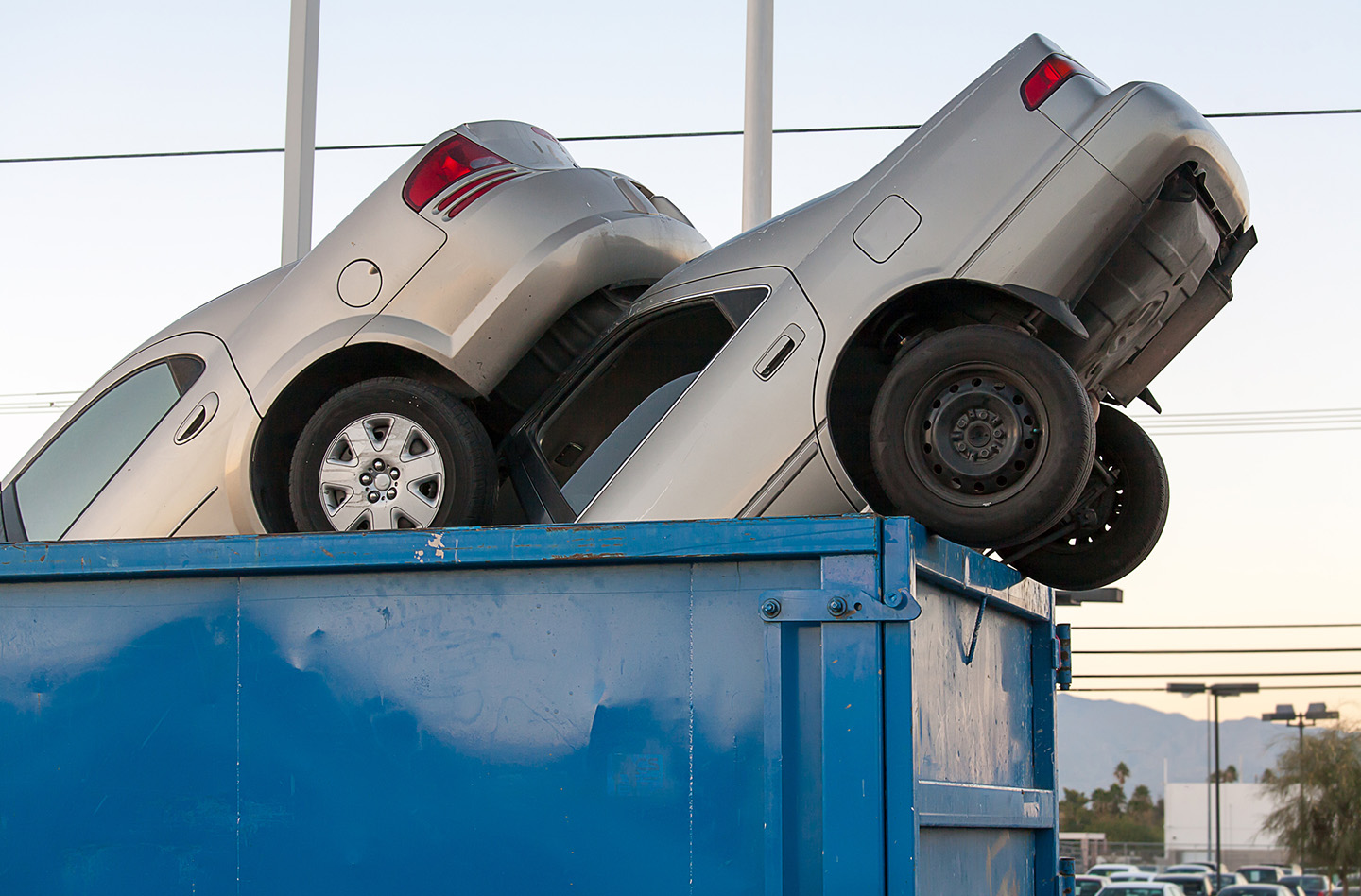
The ‘cash for clunkers‘ rebate program the Obama administration introduced during the Global Financial Crisis will also return, but with grants given for Americans to trade older internal combustion engine (ICE) vehicles for a new EV.
It is unclear if Biden’s plan will be the same as the $450 billion (A$620 billion) scheme the Democratic Party introduced to the Senate last year would have offered buyers $3000 (A$4120) to upgrade, with the aim to replace 63 million ICE vehicles to emissions-free cars within 10 years.
Biden believes an increase in EV demand and local production would create about a million new jobs across auto manufacturing, supply and infrastructure.
Vehicle emissions reductions
Increasing America’s EV fleet would go a long way to in helping Biden reintroduce stringent fuel economy standards that were wound back by President Trump.
Introduced by the Obama Administration in 2012, carmakers had to reduce carbon dioxide emissions for passenger and light commercial vehicles by 3.5 per cent each year from 2017 to 2021 and by 5.0 per cent annually from 2022 to 2025.
Trump reduced the annual emissions’ reduction to 1.5 per cent until 2026, but Biden has indicated he will set new standards that will exceed Obama’s.
Trade
Biden is expected to tone down Trump’s bullish attitude to trade agreements particularly with Europe and will re-join the Trans-Pacific Partnership (TPP).
He’s also expected to offer China an olive branch by winding back tariffs on Chinese made vehicles, parts and raw materials including aluminium. According to the US Federal Reserve, rather than protect American jobs, the tariffs on Chinese goods and materials have led to vehicle prices increasing and a loss of US auto manufacturing jobs.
What could this mean for Australia?
American-made cars already benefit from lower import taxes than European cars, so we probably won’t see a difference in the cost of vehicles shipped here across the Pacific.
And despite our strong trade ties with the US, Aussie-built EVs won’t benefit from any trade agreements as long EV grants only apply to US-made vehicles.
However, we could see EVs become cheaper here should the US legacy carmakers bring their EV plans forward as it will mean more global competition particularly at the more affordable end of the market.


